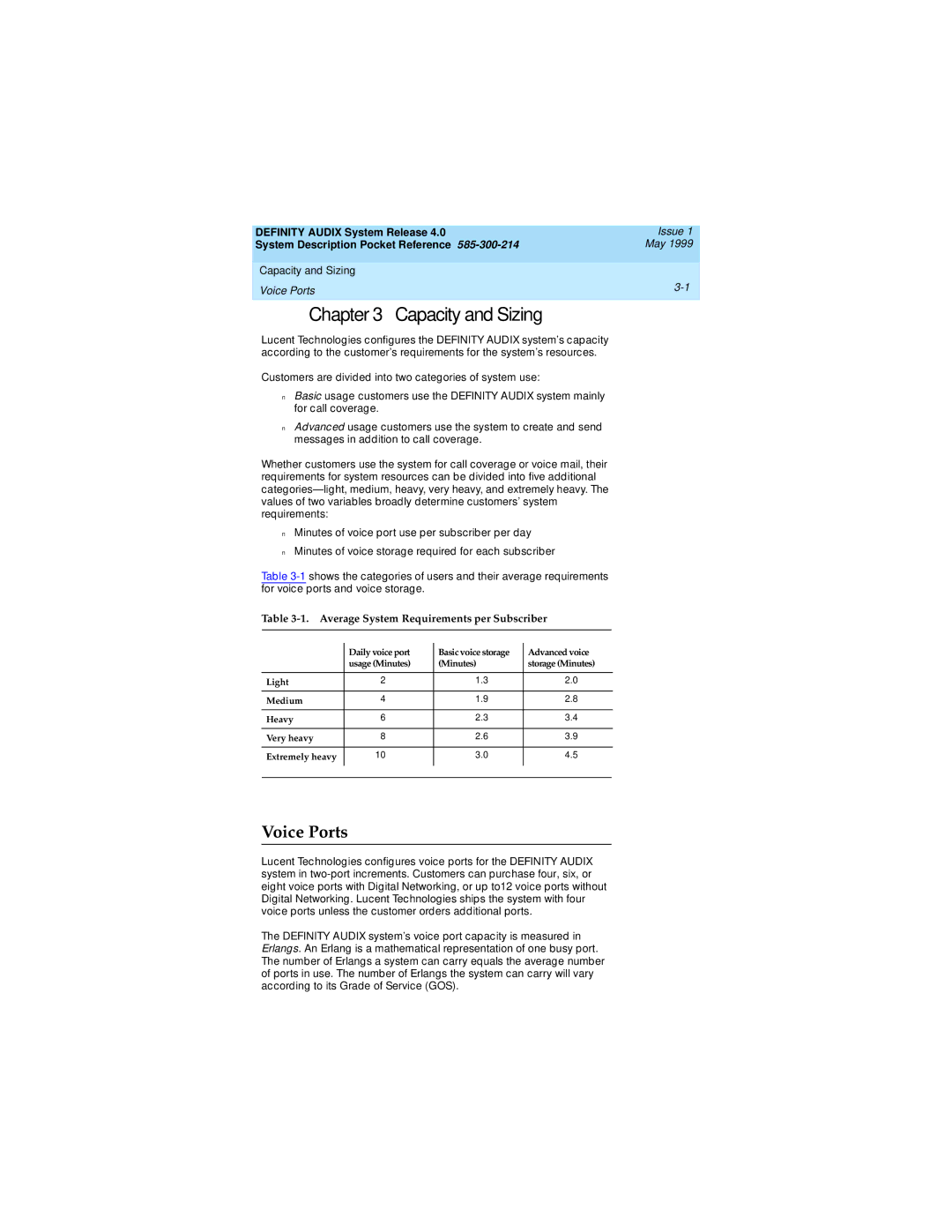
DEFINITY AUDIX System Release 4.0
System Description Pocket Reference
Capacity and Sizing
Voice Ports
Chapter 3 — Capacity and Sizing
Lucent Technologies configures the DEFINITY AUDIX system’s capacity according to the customer’s requirements for the system’s resources.
Customers are divided into two categories of system use:
■Basic usage customers use the DEFINITY AUDIX system mainly for call coverage.
■Advanced usage customers use the system to create and send messages in addition to call coverage.
Whether customers use the system for call coverage or voice mail, their requirements for system resources can be divided into five additional
■Minutes of voice port use per subscriber per day
■Minutes of voice storage required for each subscriber
Table
Table 3-1. Average System Requirements per Subscriber
| Daily voice port | Basic voice storage | Advanced voice |
| usage (Minutes) | (Minutes) | storage (Minutes) |
|
|
|
|
Light | 2 | 1.3 | 2.0 |
|
|
|
|
Medium | 4 | 1.9 | 2.8 |
|
|
|
|
Heavy | 6 | 2.3 | 3.4 |
|
|
|
|
Very heavy | 8 | 2.6 | 3.9 |
|
|
|
|
Extremely heavy | 10 | 3.0 | 4.5 |
|
|
|
|
Issue 1 May 1999
Voice Ports
Lucent Technologies configures voice ports for the DEFINITY AUDIX system in
The DEFINITY AUDIX system’s voice port capacity is measured in Erlangs. An Erlang is a mathematical representation of one busy port. The number of Erlangs a system can carry equals the average number of ports in use. The number of Erlangs the system can carry will vary according to its Grade of Service (GOS).
